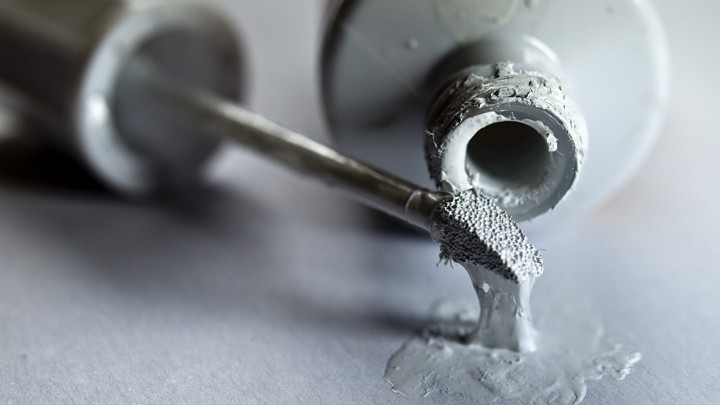Bookmarks: 5 Interesting Articles That May Help You This Week
/March 25th, 2019
Each week, I select a few articles that rise above the fray and hopefully help you on your journey in the CRE world. They pull from one of four "corners:" corporate real estate, technology, management science and anything positive. I welcome your comments on these articles.
Who Still Buys Wite-Out, and Why?
“Christmastime is when the pens in my house get their biggest workout of the year. Like many Americans above grammar-school age, I seldom write by hand anymore, outside of barely legible grocery lists. But the end of the year brings out a slew of opportunities for penmanship: adding notes to holiday cards to old friends, addressing them, and then doing the same with thank-you notes after Christmas. And given how little I write in the other 11 months of the year, that means there are a lot of errors, which in turn spur a new connection with another old friend: Wite-Out.The sticky, white fluid and its chief rival, Liquid Paper, are peculiar anachronisms, throwbacks to the era of big hair, big cars, and big office stationery budgets. They were designed to help workers correct errors they made on typewriters without having to retype documents from the start. But typewriters have disappeared from the modern office, relegated to attics and museums. Even paper is disappearing from the modern office, as more and more functions are digitized. But correction fluids are not only surviving—they appear to be thriving, with Wite-Out sales climbing nearly 10 percent in 2017, according to the most recent public numbers. It’s a mystery of the digital age."
www.theatlantic.com Correction fluids are not only surviving—they appear to be thriving, with Wite-Out sales climbing nearly 10 percent in 2017, according to the most recent public numbers. It’s a mystery of the digital age.

DAVID PLATER UK / GETTY
No One Asks the Top CEOs Where They Went to College
Of the CEOs of the top 20 companies in last year’s Fortune 500, exactly one — Amazon.com Inc.’s Jeff Bezos — went to an Ivy League school (Princeton). And that’s not all. We tend to think of the founders of technology companies as having all gone to Stanford University (or dropping out of Harvard University). And yes, many of them did. But Michael Dell went to the University of Texas. Steve Jobs dropped out of Reed College in Portland, Oregon. Marc Andreessen went to the University of Illinois at Urbana-Champaign. So did Larry Ellison, though he never graduated.
www.crainschicago.com Of the CEOs of the top 20 companies in last year’s Fortune 500, exactly one — Amazon.com Inc.’s Jeff Bezos — went to an Ivy League school (Princeton)
"Apple CEO Tim Cook starts his morning routine -- not just his morning, his morning routine -- at 3:45. General Motors CEO Mary Barra gets to the office by 6 a.m. Best-selling author Dan Brown (The Da Vinci Code, etc.) gets up at 4 a.m., has a smoothie and a cup of bulletproof coffee, and then grinds away.
Clearly, waking up early works for them.
But not for everyone.
As Adam Grant says, "The world's most successful people aren't worried about what time others wake up. They wake and work on the schedule that works for them."
What seems right for early birds may not be right for you, because what time you start your day has nothing to do with your level of success.
Success is all about what you accomplish -- and, just as important, how you choose to accomplish it.”
The Hottest Chat App for Teens Is … Google Docs
"When the kids in Skyler’s school want to tell a friend something in class, they don’t scrawl a note down on a tiny piece of paper and toss it across the room. They use Google Docs.
“We don’t really pass physical notes anymore,” said Skyler, 15, who, like all the other students in this story, is identified by a pseudonym.

As more and more laptops find their way into middle and high schools, educators are using Google Docs to do collaborative exercises and help students follow along with the lesson plan. The students, however, are using it to organize running conversations behind teachers’ backs." www.theatlantic.com
How to Make Your Open Office Less Annoying
"You know you’re in an open-plan office when you click on an article that will allow you to hate-read about open offices, then kind of hide your computer screen with the top half of your torso so that your colleagues don’t realize just how much you’re not a team player.You know you’re in an open office because you’re trying to write a sensitive email while wedged between one coworker making a gynecologist appointment and another picking tuna-fish salad out of his Invisalign.The office’s openness is never more real to you than when you try to have a private conversation with the intern about the office dress code, only to further expose the entire office—to a lesson in micro-generational social norms and the definition of a “cold-shoulder top.”
Around 70 percent of offices in the United States are open-concept, according to the BBC, even though these paper-pushing panopticons make us more likely to get sick, and make us less likely to be ... uh, what was I saying ... productive. Because of all the distractions.
Your success blesses others. I wish you a great a hugely impactful week!


